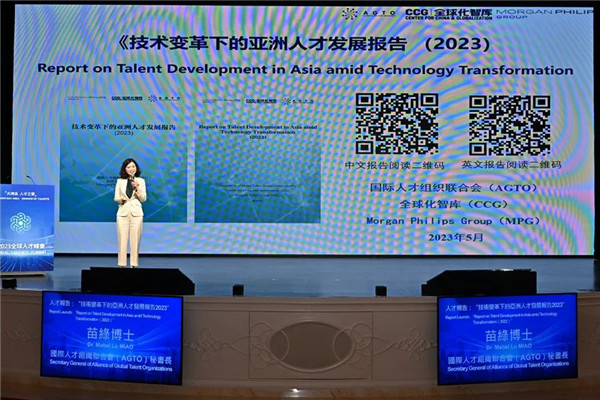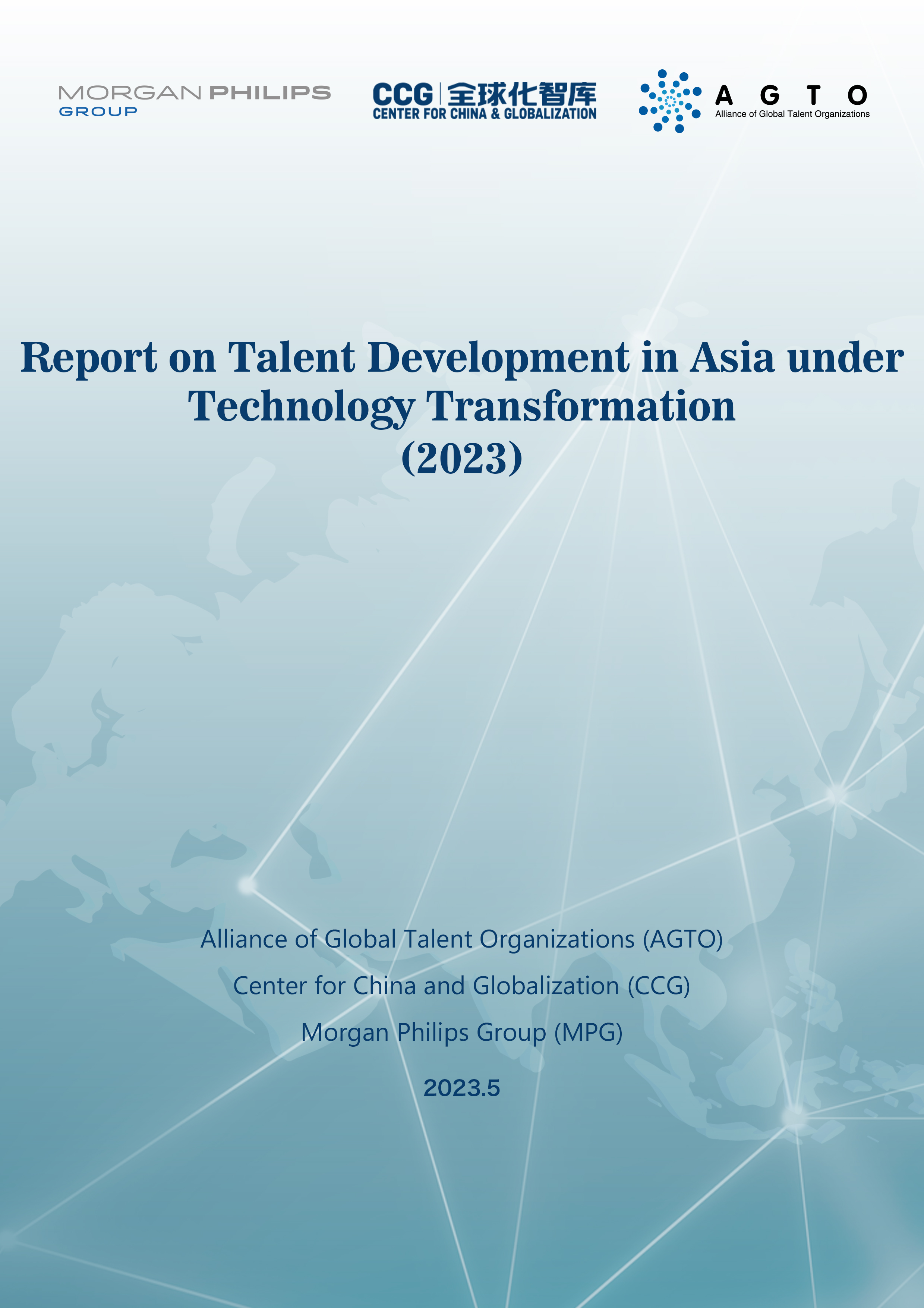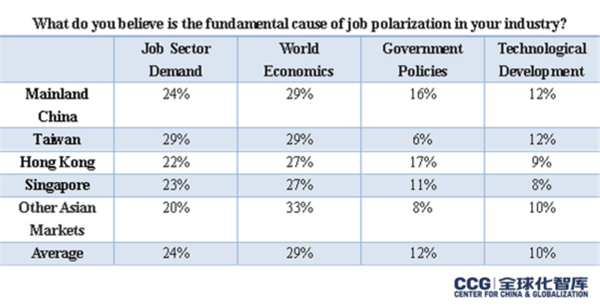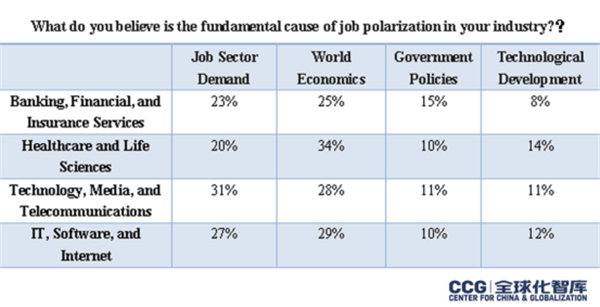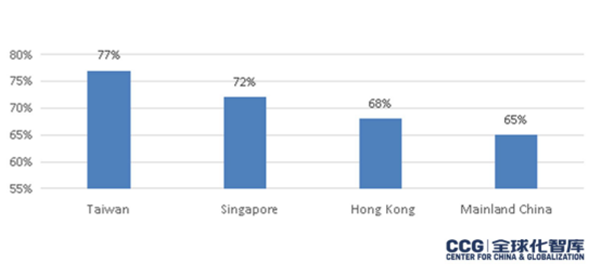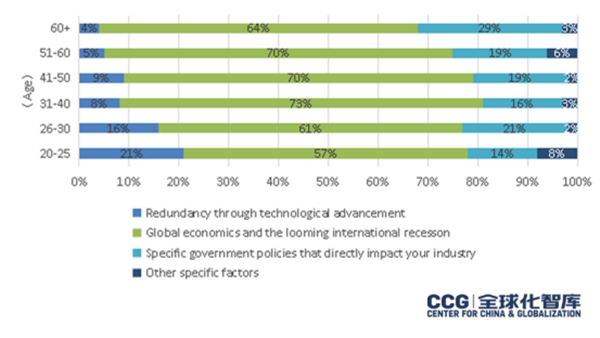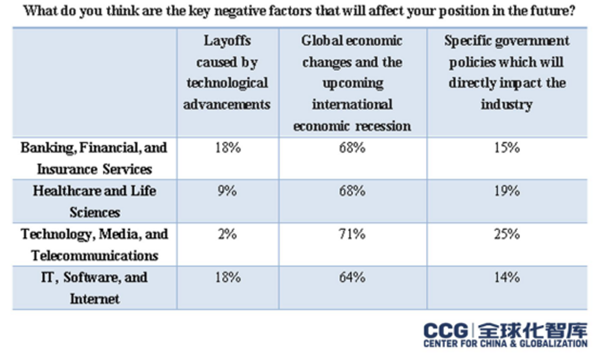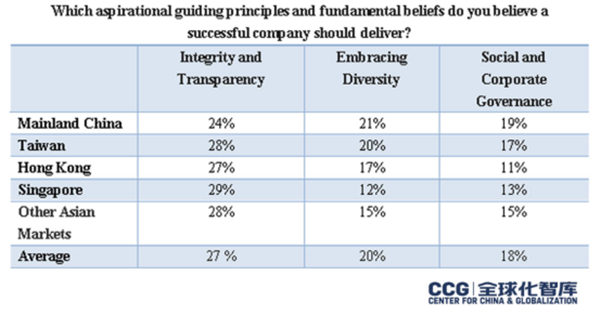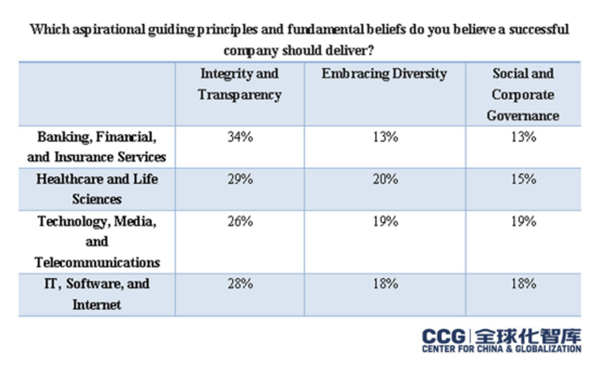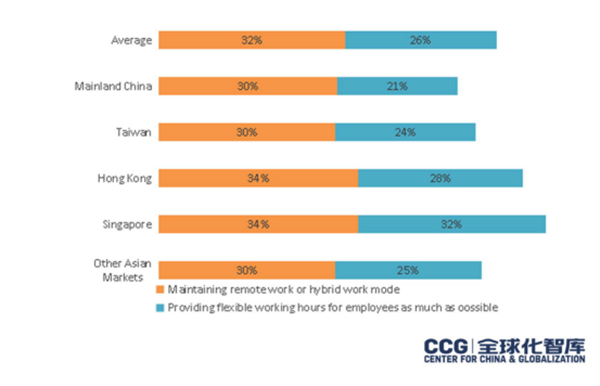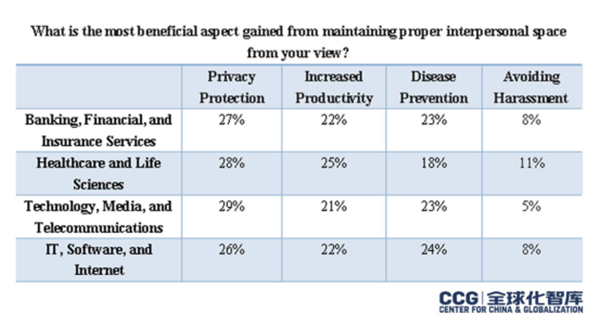CCG Releases Report on Talent Development in Asia (2023)
May 11 , 2023On May 11, 2023, the Center for China and Globalization (CCG) released its “Report on Talent Development in Asia under Technology Transformation (2023)” at the Global Talent Summit held in Macao, which organized by the Alliance of Global Talent Organizations (AGTO), the CCGM China-ASEAN GBA Cooperation Center (CAGCC), and co-organized by Hong Kong Institution for International Finance (HKIIF) with support from CCG and the Macao Trade and Investment Promotion Institute (IPIM). This report was a joint effort by AGTO, CCG, and the Morgan Philips Group, and the first talent report published by AGTO. The report incorporates a wealth of reference materials and research reports in an attempt to examine the influence of the technological revolution on talent development and human resources, while also offering insights on how to deal with the impact of technological change on talent development, from the perspective of individuals, enterprises, education and training, as well as policy makers.
The working report delivered at the 20th National Congress of the Communist Party of China named science and technology as the primary drivers of production, talent as the nation’s primary resource, and innovation as the primary driver of growth. In recent years, rapid development in internet technologies and artificial intelligence (AI) have made them key in factors in a new technological and industrial revolution that will affect various fields and result in multifaceted changes in both society and the economy.
Starting with the impact of technological changes on talent development, the research team analyzed related literature and conducted surveys targeting practitioners, experts, and young professionals in various industries. The team found that the Asian human resources (HR) market has seen a shift towards job polarization in the context of technological change. Respondents were mainly concerned about the impact of the state of the global economy on their jobs and about issues including company integrity and transparency, hybrid work models and interpersonal space.
The report shows that the advent of AI has had far-reaching impacts in many areas including ethics, legal norms, socio-economics, industrial development, corporate organizations and individuals, creating huge demand for talent in the field of AI. This has led to efforts to optimize talent structures, enhance the allocation of talent resources, improve the efficiency of talent distribution, facilitate the development, mobility, and cultivation of talent, while also posing new challenges to existing talent development and governance strategies.
The followings are the key findings of this report:
1. Technological changes driven by AI promote the flow of talent to the digital economy, and the future talent resources will undergo multi-dimensional changes.
This report shows that in recent years, with the rapid development of Internet technology driven by big data and cloud computing, artificial intelligence (AI) has become a key factor that is leading a new phase of technological change and industrial transformation, resulting in a series of high-tech developments that affect the productivity, daily life, and even people’s way of thinking.
Technological change will have an impact on talent development in six different ways. First, human-computer interaction and integration has resulted in a two-way interaction between humans and AI, augmenting human capabilities and knowledge while also enhancing human performance. Second, AI could potentially bring about the virtualization of talent resources, leading to a new model of talent development, such as human-computer collaboration, rather than limiting talent to humans alone. Third, technologies such as AI will bring more opportunities for automation and smart operations, gradually replacing work that is repetitive and does not require creativity or individual judgement. Fourth, the use of AI has changed how things are produced and how people live, resulting in new business models and employment opportunities. Fifth, trends in talent sharing and talent flow are more pronounced, while work patterns are more flexible and more digital. Last, the progress of AI is transforming the demand for talent and and how talent is evaluated and cultivated. Human collaboration with systems, tools, and platforms will become the new normal and the ability to collaborate with AI will become an important criterion in the evaluation of talent. Individuals that are well versed in AI, hybrid systems, and innovation will become the focus of future demand in the labor market, while talent cultivation will become more interdisciplinary. Systems that focus on the evaluation and cultivation of talent will also see new periods of transformation and new breakthroughs.
2. The Asian human resources (HR) market has seen a shift towards job polarization, but intermediate positions are relatively stable.
According to the report, job polarization in the labor market has slowed. While polarization used to mean fewer mid-level jobs, this report found that the negative impact of international politics and economic downturn, positions for chief executives and senior managers have decreased significantly compared to the previous year. In contrast, mid-level jobs did not decrease with 34% of the respondents indicating that the number of mid-level positions did not change compared to the previous year and even increased. Due to the current flow of employees between different industries throughout Asia over the past year, mid-level positions remain relatively stable.
When asked about “job polarization,” respondents stated that two main factors were changes in the global economy and fundamental changes in job market demand. Respondents in the technology, media and telecommunications sector believe that fundamental shifts in job market demand was the greatest impact on job polarization; in the healthcare and life sciences sector, the highest proportion (34%) of respondents believe that changes in the global economy was the fundamental cause of job polarization. Among respondents in the healthcare and life sciences sector, the highest proportion (14%) consider technological advancements to be the primary cause of job polarization, followed by the IT, software, and internet sector (12%), and the technology, media, and telecommunications sectors (11%).
Source: Research data from the Morgan Philips Group Talent Database.
Source: Research data from the Morgan Philips Group Talent Database.
3. Over 70% of respondents expressed concern about the impact of the global economy on their jobs; mainland of China respondents expressed relatively lower levels of concern.
The Report on Talent Development in Asia under Technology Transformation (2023) shows that on average, 70% of respondents believe that the current global economic situation and the upcoming economic crisis may lead to negative changes in their jobs, compared to other developed markets in Asia, respondents from mainland of China expressed relatively lower levels of concern. Respondents in the age group of 31 to 60 generally expressed concern about the impact of global economic development on their own positions. Among respondents aged 31 to 40, 73% expressed concern, while among respondents aged 41 to 60, 70% shared the same concerns. The proportion of young people under the age of 30 expressing concern was significantly lower compared to other age groups.
Table 3: Concerns among talent from different regions regarding the impact of the global economy on their positions
Source: Research data from the Morgan Philips Group Talent Database.
4. Younger respondents more concerned about layoffs caused by technological advancements, while respondents with senior and relatively stable positions are less sensitive to technological changes.
The Report on Talent Development in Asia under Technology Transformation (2023) shows that sensitivity to the impact of technological change on the positions of respondents is not robust, with only 8% of respondents expressing concern. This may be partly due to the fact that the respondents are mainly in Asia, where AI tools like ChatGPT have not yet been widely popularized and the HR market has not yet experienced the impact of AI on a large scale.
In terms of age distribution, younger individuals are more concerned about layoffs resulting from technological advancements with 21% of respondents aged 20-25 expressing concerns about layoffs due to technological advancements while 16% in the 26-30 age group shared the same concerns. Younger individuals are more concerned about the impact of technology for several reasons. Firstly, they tend to be more sensitive to technological changes. Secondly, their careers may not be as stable, making it more likely that their jobs could be replaced by AI and other technologies.
Table 4: Concerns of talent from different age groups regarding the impact of different factors on their positions
Source: Research data from the Morgan Philips Group Talent Database.
5. More respondents in the banking, financial, and insurance services, as well as IT, software, and Internet industries worried about their positions.
According to the report, a higher proportion of respondents in the banking, financial, and insurance services sector, as well as the IT, software, and Internet industry sector were more worried concerned about being laid off with 18% of respondents in both sectors expressing concern, while only 9% of the respondents in health care and life sciences were concerned.
Table 5: Concerns of Talent in Different Sectors about Factors Affecting Their Positions
Source: Research data from the Morgan Philips Group Talent Database.
6. Talent is more concerned about the company integrity and transparency, hybrid work models, and interpersonal space amid technology changes.
Research data shows that while salary remains the primary factor in attracting talent, it is closely followed by:
·Integrity and Transparency, which refers to respecting employees’ perspectives and feelings and considering them in the decision-making process;
·Diversity embraced by the company.
Nearly 50% of respondents believed that “integrity and transparency” or “embracing diversity” were the main motivators for them. On the other hand, factors like “social justice” and “extreme inclusivity” ranked relatively low. In Singapore, respondents were particularly focused on integrity and transparency, with 29% of Singaporean respondents believing that successful companies should uphold these principles and values. In the banking, financial, and insurance services sector, respondents showed more concern about “integrity and transparency” compared to other sectors, with 34% of respondents in this sector recognizing the importance of companies conveying these principles. The healthcare and life sciences sector followed closely, with 29% of respondents acknowledging the significance of “integrity and transparency” in companies.
Table 6: Recognition of Company’s Guiding Principles and Fundamental Beliefs among Talent in Different Regions
*Other factors included:
·Showing compassion and enhancing employee well-being.
·Advocating for social justice and unconditionally embracing employees in the workplace, ensuring fair distribution of resources, opportunities, and rights.
·Demonstrating sustainability by responsibly using resources, avoiding environmental impacts, and safeguarding employee health.
·Cultivating an environment of extreme inclusive.
Source: Research data from the Morgan Philips Group Talent Database.
Table 7: Recognition of Company Guiding Principles and Fundamental Beliefs by Talent in Different Industries
*Other factors included:
·Showing compassion and enhancing employee well-being.
·Advocating for social justice and unconditionally embracing employees in the workplace, ensuring fair distribution of resources, opportunities, and rights.
·Demonstrating sustainability by responsibly using resources, avoiding environmental impacts, and safeguarding employee health.
·Cultivating an environment of extreme inclusivity.
Source: Research data from the Morgan Philips Group Talent Database.
7. In this changing environment, many employees prefer working remotely or hybrid work models, with flexible working hours another factor in choosing a workplace.
Research data shows that in the current changing environment, many employees prefer to work remotely or adopt a hybrid working model. In the Asian region, nearly one-third of respondents indicated that they would continue continue to work remotely or adopt a hybrid work model in the coming years. Another major factor influencing how individuals choose a workplace is whether the company can provide flexible working hours for employees. 26% of respondents considered flexible working hours as an important factor in their choice of a workplace.
Table 8: Talent’s Recognition of Maintaining Remote or Hybrid Work Models and Providing Flexible Time for Employees
Source: Research data from the Morgan Philips Group Talent Database.
8. Workplace privacy should be taken seriously, a lack of interpersonal space and privacy protection can negatively affect motivation and efficiency.
According to the report, meeting the current needs of talent today is fundamental to ensuring that a company can attract potential employees. Most respondents want to avoid negative and divisive company cultures. They believe that managers who do not interact with employees and are difficult to approach create an uncomfortable and even unsafe work environment. For employees, these factors have a greater impact on them than factors such as bullying, harassment, inappropriate behavior, and unnecessary physical contact.
Data shows that workplace privacy should be taken seriously. Over 26% of respondents, on average, across different regions believed that a lack of interpersonal space and privacy protection can negatively affect their motivation and efficiency. In the work environment, “interpersonal space” refers to a safe or buffer zone between individuals. Providing employees with appropriate interpersonal space can be beneficial regardless of office layout or work environment.
Table 9: Feedback on the Benefits of Maintaining Proper Interpersonal Space among Talent in Different Regions
Source: Research data from the Morgan Philips Group Talent Database.
Table 10: Feedback on the Benefits of Maintaining Proper Interpersonal Space in Different Sectors
Source: Research data from the Morgan Philips Group Talent Database.
9. Working closely to maximizing the positive potential and minimizing the adverse impact of AI technology.
This report also offers insights on how individuals, businesses, education institutions, and governments can to work closely together to find suitable ways to maximize the positive potential and minimize the adverse impacts of AI technology. For individuals, the focus is on personal development and establishing sustainable career development plans, emphasizing learning and self-improvement. Individuals need to constantly update their skills and knowledge to remain competitive. In addition, they should also pay attention to corporate culture and values, build stable workplace relationships, remain aware of future market trends and acquire social capital by establishing good social connections.
Companies must deal with the polarization of the talent market, foster an environment that protects interpersonal space, cultivate symbiotic relationships with employees, and actively support the sustainable development of employees and the business.
In the education and training of talent, changes must be made to the lecture-based educational model with timely updates to content and exploration of new teaching methods and technologies, while at the same time guiding students to develop habits that help them adapt to new technologies. Teachers should also be kept up to date with the latest developments and applications of AI technology, strengthen their focus on AI ethics, moral literacy, and a humanistic awareness.
Policy-makers should enhance training and re-education, change how talent is managed, establish and improve privacy and security protection measures, promote the digital transformation of various industries and strengthen international cooperation. As new production and work models develop, they should also endeavor to establish international standards and build an international environment for the shared development of talent in the face of increasingly rapid technological change.
